Zoho CRM is a customer relationship management platform. It lets you manage sales, marketing, and customer support processes from one place. However, before making the selection, you must learn about the primary Zoho CRM pros and cons.
If you’re a VP, Director or Senior Manager of Customer Support or CX at a D2C or consumer brand (US, UK, Australia), this article focuses on the pros and cons that matter for your teams. Factors such as implementation speed, cost, integration and how CRM choice affects customer experience.
Are you trying to streamline sales, marketing, and customer service processes using a CRM? Yes, you are in the right direction! Using a CRM, you can easily:
- Manage leads
- Track deals
- Maintain consistent customer communication
So, out of the many options, have you finalised Zoho CRM? Do you find it budget-friendly? Well, currently, Zoho CRM supports more than 13 million users worldwide. It was launched in 2005 and supports 26 languages. The organisation has headquarters in India (Chennai) and the US (Pleasanton, California). It is a large organisation and employs over 9,000 people!
Besides offering several benefits (like automation), Zoho CRM also presents some challenges! To make a smart choice, this article talks about some major Zoho CRM pros and cons, you must know in 2025. Also, we will learn about its major features and working. But, firstly, let’s see if it is a good CRM?
Zoho CRM is an attractive & cost-efficient platform for small to mid-sized market D2C brands that need an all-in-one CRM and omnichannel support. For CDP features or complex automation, evaluate Zoho alongside dedicated CDPs or automation platforms.
Is Zoho A Good CRM?
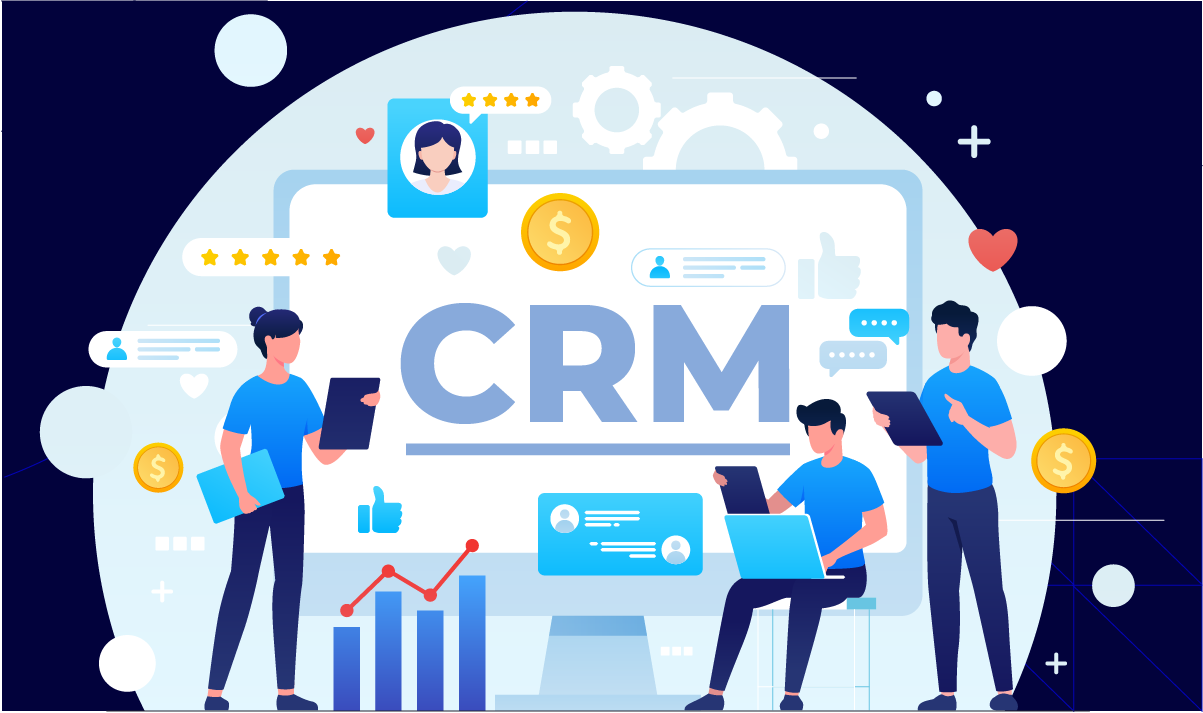
Studies show that more than 18,000 live websites currently use Zoho CRM (with more than 35,000 sites having used it historically).
Zoho CRM is a widely recommended CRM system. It provides a centralised platform where you can manage:
- Sales
- Marketing
- Customer service
- Inventory
It offers all the primary tools like lead management, deal tracking and sales forecasting. Let’s see if this tool is the right choice for you:
Who Should Use Zoho CRM?

- Freelancers
Zoho CRM offers a free plan for up to three users. It also has affordable paid plans that provide access to essential CRM tools without incurring high costs. Freelancers can use it to:
- Track leads
- Manage clients
- Automate basic sales processes
- Small Businesses Needing Free CRM
The free plan offers core features like lead and account management. It allows small businesses to:
1. Track sales opportunities
and
2. Manage customer data
However, it is limited to three users! Thus, Zoho CRM is best for very small teams or solo entrepreneurs.
Who Should Look for Alternatives?
- Businesses Needing White Labeling
Zoho CRM does not offer white labeling or rebranding options. If you need a CRM that lets you rebrand the platform with your own logo and colors, you may need to consider other CRMs that provide this capability.
- Beginners Looking For Simple CRM Systems
Zoho CRM has a steep learning curve. It is due to its extensive feature set. Users new to CRM software may find the customisation and integration processes complicated.
If you want a simpler CRM with minimal setup and easy navigation, you can look for other platforms.
- Small Teams with More than Three Users
Please note that the free plan only supports up to three users. If you need more than three seats (without upgrading to a paid plan), you should look for alternatives.
For CX leaders at D2C companies (US/UK/AU) looking to centralize customer interactions and scale support cost-effectively, Zoho is often a good option, only if you plan for training and integration work.
5 Major Features Of Zoho CRM
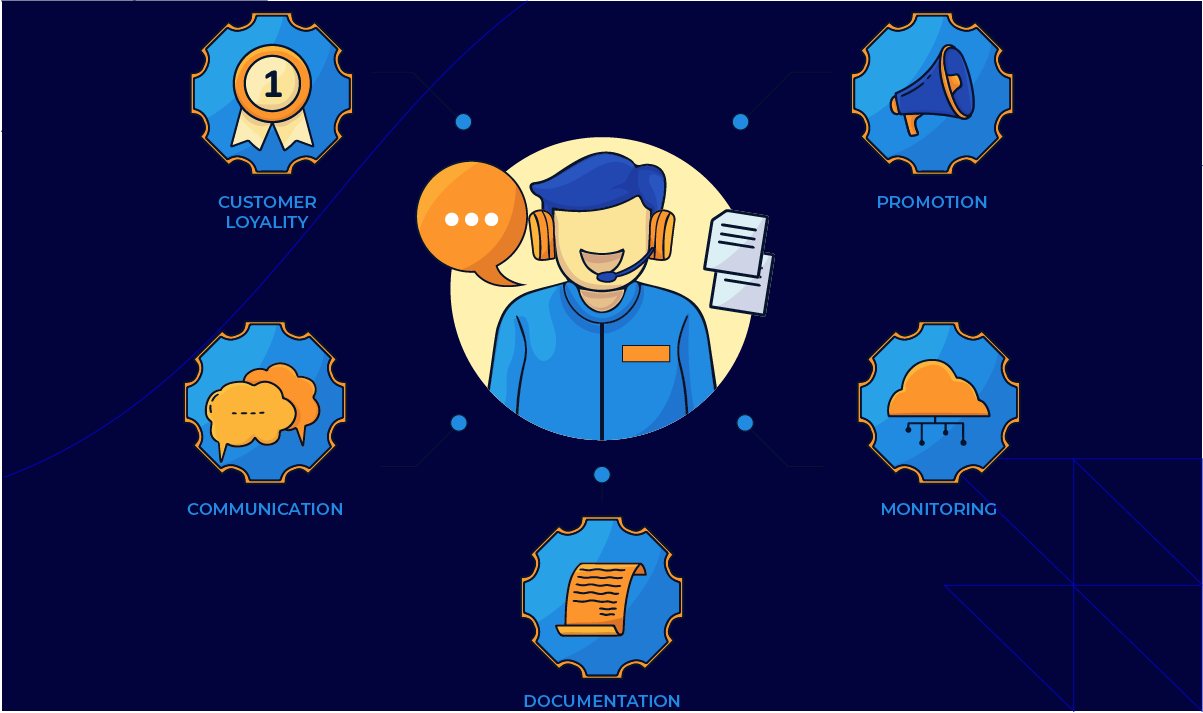
Zoho CRM is a single platform that can support you in different business areas, like:
- Sales
- Marketing
- Customer service processes
It offers a range of features that automate tasks and centralise customer interactions. Let’s have a look at some of its core features:
1. Allows For Sales Automation
Zoho CRM automates repetitive sales tasks. Using it, your sales teams can:
- Set up automatic lead assignments.
- Schedule follow-ups
- Trigger specific actions based on customer behavior
For example, when a lead responds to an email, the CRM can automatically assign the lead to a sales representative and create a follow-up task.
2. Lets You Manage Sales Deals
Using Zoho CRM, you can manage sales deals and track revenue. Your sales representatives can:
- Monitor the status of each deal
- Set up reminders for follow-ups
- Create quotes for potential clients
The system also provides a 360-degree view of each customer account. It displays details like:
- Purchase history
- Communication records
- Service requests
This consolidated view allows your sales teams to identify opportunities for upselling or cross-selling.
3. Supports Omnichannel Communication
Zoho CRM offers omnichannel messaging solutions. It centralises customer communication across multiple channels, such as:
- Email Answering Service Outsourcing
- Phone
- Social Media support services
- Live chat service for website
All conversations are accessible from a single interface. This allows sales and support teams to respond to inquiries quickly.
4. This view helps CX teams lower response times and maintain consistent service across channels. If your CX volume is very high, consider pairing Zoho with specialized contact-center technology or outsourcing to a CX partner like Atidiv to maintain SLA targets. Atidiv’s automation work delivered 80% time savings and 99% accuracy for a start-up — see the case study.
5. Gives You Advanced Analytics and Reports
Zoho CRM provides over 40 pre-built reports. These reports cover:
- Sales performance
- Lead conversion rates
- Revenue forecasting
Also, you, as a user, can create custom dashboards to track specific metrics or generate detailed reports for management.
6. Use Built-in AI and Conversational Tools
Zoho CRM includes “Zia”. It is an AI-powered assistant that provides:
- Sales predictions
- Workflow suggestions
- Data analysis
Zia can easily identify patterns in sales data and predict which deals are likely to close. It also suggests optimal times to contact leads.
How Does Zoho CRM Work?
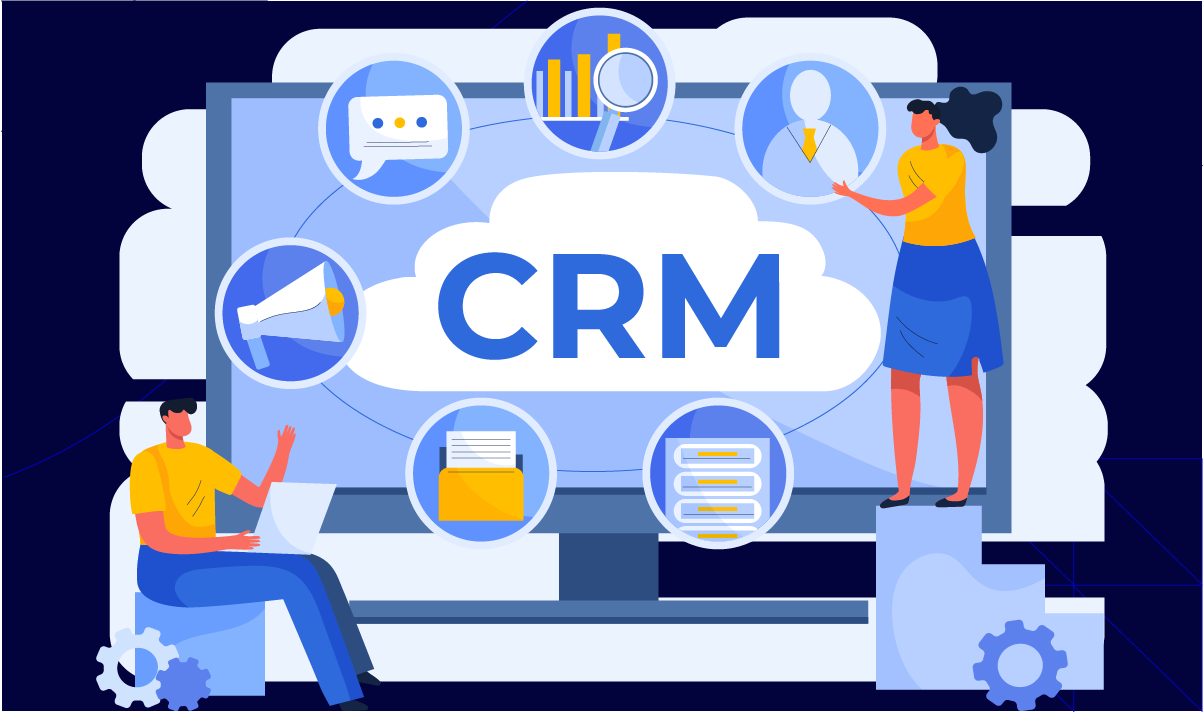
Planning to use Zoho CRM? Let’s see how it works step-by-step:
Step I: Zoho CRM Captures Leads
Zoho CRM collects information from multiple sources, such as:
- Websites
- Social media
- Phone calls
You can set up forms to capture leads directly from your website or import existing customer data from spreadsheets. Each new contact is added to the CRM as a lead with complete details like:
- Name
- Phone number
- Source of inquiry
Step II: You Manage Contacts and Accounts
Once leads are captured, Zoho CRM organises them into contacts and accounts.
| Contacts | Accounts |
| Contacts are individual people you do business with, such as potential customers or clients. | Accounts are companies or organisations linked to those contacts. |
You can view the entire communication history (with each contact), including:
- Emails
- Calls
- Chat messages
This lets you keep track of ongoing interactions and ensures you never miss a follow-up.
Step III: Track Deals and Sales Opportunities
Using Zoho CRM, you can track potential sales opportunities through the sales pipeline. Let’s see how:
- You create a new deal for each sales opportunity.
- You assign it to a sales representative.
- The deal is moved through various stages, such as
- Prospecting
- Negotiation
- Closed Won
- You can add notes, set follow-up tasks, and attach documents to each deal.
This structured approach ensures that no sales opportunity is overlooked.
Step IV: Manage Communication Across Channels
Zoho CRM integrates with your email, phone, and social media support. This allows you to manage all communications from a single platform.
- You can send and receive emails directly within the CRM.
- Phone calls can be logged and linked to specific contacts or deals.
- Social media messages can be tracked and responded to.
Step V: Monitor Performance with Reports and Dashboards
Zoho CRM provides built-in reports and dashboards. Let’s see two major reports prepared by it:
| Sales reports | Marketing reports |
Shows:
|
Displays campaign effectiveness, such as:
and
|
Moreover, using custom dashboards, you can view critical data at a glance, such as the number of:
- Open deals
- Sales targets
- Follow-up tasks
Major Zoho CRM Pros and Cons 2025
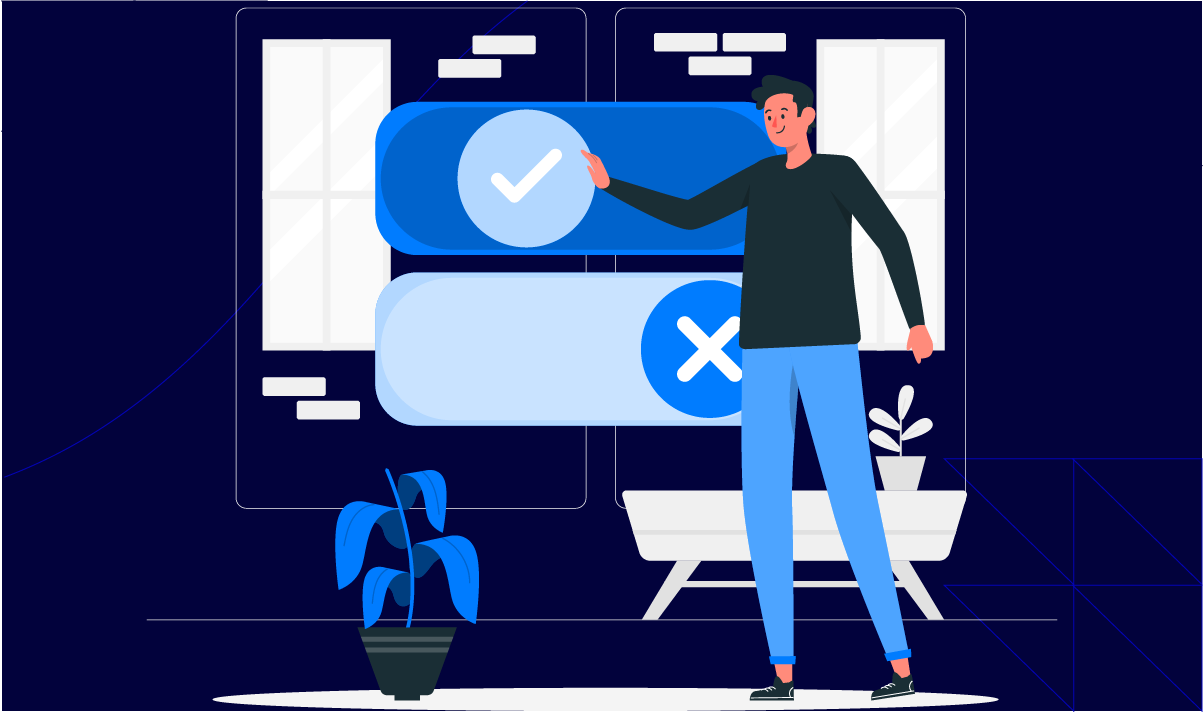
Zoho CRM offers powerful features and customisation options. However, it also comes with several challenges, like a steep learning curve and inefficient customer service.
To know if it’s the right fit for your business needs, study the major Zoho CRM pros and cons below:
Pros
Offers Customizations Beyond Limits
In Zoho CRM, users can modify:
- Fields
- Page layouts
- Workflows
They can also set up automation to handle tasks such as lead assignments or follow-ups.
Feature-Rich Platform
1. Zoho CRM consists of various tools that support:
- Sales
- Marketing
- Customer service operations
2.It provides a sales pipeline to track deals from lead generation to closure.
3.As a user, you can automate repetitive tasks like:
- Sending emails
or
- Updating records
4.Additionally, Zoho CRM provides reporting and analytics features.
5.Using them, you can gain insights into sales performance.
6.The AI assistant, Zia, offers predictive sales recommendations.
Easy User Interface
1. The user interface of Zoho CRM is designed to be intuitive and easy to navigate.
2.It offers features like:
- Drag-and-drop functionality
and
- Kanban boards
3.Using them, you can organise your workflow visually.
4.Also, the layout is structured to display relevant information clearly.
5.This design allows teams to access key data quickly.
6.As a result, this reduces the time spent searching for information.
7.It also promotes efficient task management and enhances user productivity.
Big Value, Small Price!
- Zoho CRM is priced competitively compared to other CRMs with similar capabilities.
- It provides all the primary CRM features (such as contact management, deal tracking, and reporting) at lower price points.
- This pricing structure makes Zoho CRM an attractive option for small and medium-sized businesses that need comprehensive CRM tools without incurring high costs.
100% Seamless Integration Capabilities
1. Zoho CRM integrates with both:
- Zoho’s suite of business applications
and
- External tools like Slack, QuickBooks, and MailChimp
2. This connectivity allows organisations to centralise customer data.
3. Also, you can easily streamline workflows across different platforms.
For example,
- Data entered in Zoho CRM can be automatically synced with:
- Zoho Books for invoicing
or
- Zoho Campaigns for email marketing.
- This level of integration reduces data entry errors.
4. Additionally, Zoho CRM integrates with other Zoho apps and third-party tools like Google Workspace and Microsoft 365.
Automate to Boost Productivity
1. Using Zoho CRM, you can automate routine sales and marketing tasks.
2. You can easily set up “workflow rules” to trigger actions such as:
- Sending emails
- Updating records
- Notifying team members based on specific conditions
3. This reduces manual work.
4. Also, it ensures your team is consistently following up with leads and customers.
5. Moreover, automation lets you maintain data accuracy by updating records in real time.
Note on CDP & Advanced Data Needs: Zoho CRM includes unified contact profiles and journey analytics but if you require enterprise-grade customer data platform (CDP) capabilities like identity linking and activation at scale, hence you should evaluate pairing Zoho with a dedicated CDP. (This is a common pattern for consumer brands with large, cross-device audiences.)
Cons
Longer Learning Curve
1. Zoho CRM provides a wide range of features.
2.However, understanding how to use all of them can take time.
3. If your employees are new to CRM systems, they will find it challenging to:
- Adjust to Zoho’s interface
and
- Learn how to configure custom fields, automation, and integrations
4. Also, the platform includes various modules and tools, which can be overwhelming initially.
5. Thus, as a business owner, you must offer training to your staff.
6. This may put an additional cost burden.
Gaps in Customer Service
1. Users often mention that Zoho’s customer support is inconsistent.
2. They report that issues take longer to resolve and even require multiple follow-ups.
3. However, please note that:
- The response time can vary
and
- The quality of assistance may depend on the support plan selected.
4. Usually, basic plans have slower response times, while premium plans offer quicker access to support.
Initial Configuration Challenges
1. Setting up Zoho CRM is a lengthy process (particularly for organisations that require extensive customisation).
2.It will take significant time to:
- Define workflows
- Configure automation
- Integrate third-party applications
4.If your business deals with complex sales processes, you may need to invest additional resources in planning and implementation.
5.Be aware that improper configuration can lead to data inconsistencies.
Want to Scale Up? It’s Tough For Larger Enterprises
1. Zoho CRM is designed for small to medium-sized businesses.
2. Some larger enterprises find its capabilities limited compared to enterprise-grade CRMs like Salesforce or Microsoft Dynamics.
3. Advanced features (such as AI-powered analytics or in-depth reporting) are not as strong as those offered by high-end CRM platforms.
4. Additionally, managing a large volume of data or integrating multiple systems is complex.
5. Usually, these shortcomings limit the scalability of growing businesses.
You Can Face Occasional Glitches
1. Some users report that Zoho CRM experiences minor bugs, particularly when using:
- Advanced automation
or
- Third-party integrations
2. Users have reported problems syncing Office 365 IMAP and Outlook calendars with Zoho CRM.
3. There are cases where linking emails in Outlook to Zoho CRM contacts or deals causes the system to hang or not process the request, even after updating both Zoho and Microsoft add-ons.
4. Some users have experienced situations where the messages inbox in the Zoho CRM toolbar stops updating. This prevents them from seeing new emails, even though individual contact emails still arrive.
5. While Zoho regularly updates its platform to address these issues, occasional glitches can disrupt daily operations.
Zoho CRM Too Complex? Let Atidiv Handle Your 100% Customer Support Department in 2025!
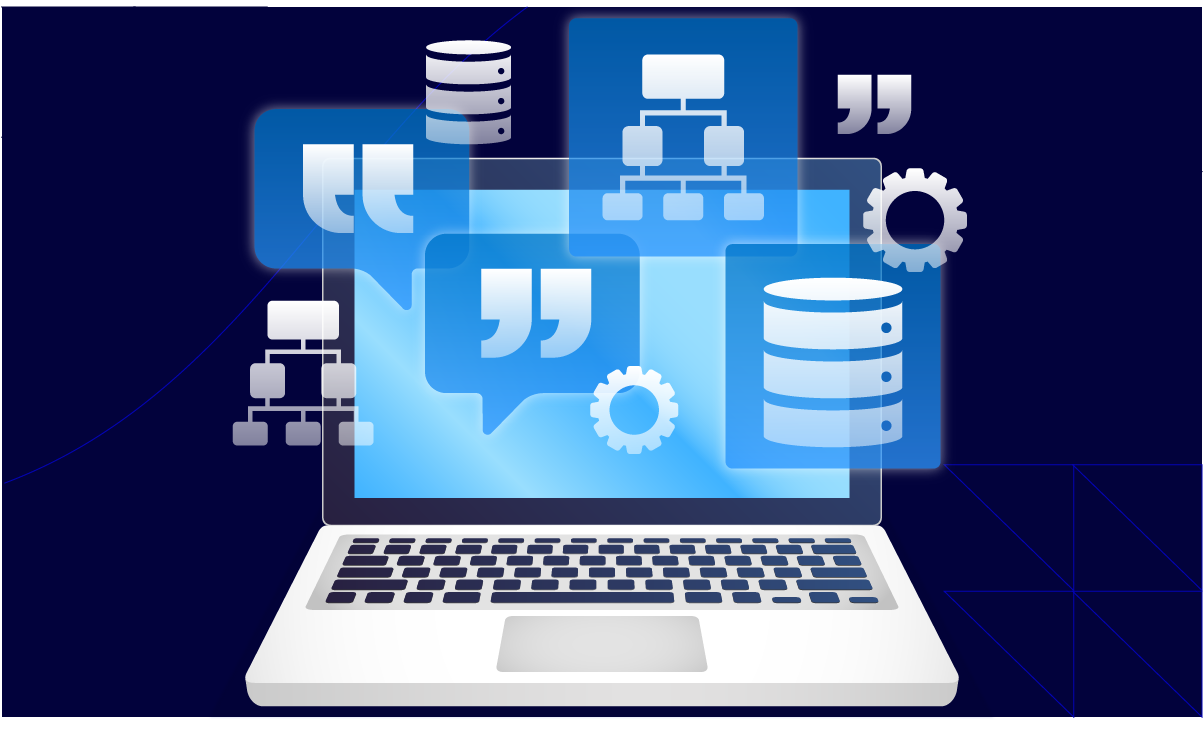
Zoho CRM offers extensive features for managing sales, marketing, and customer service. It is an ideal tool for small and medium-sized businesses. However, its complex setup, learning curve, and occasional support gaps may pose challenges! Thus, make a thorough analysis of Zoho CRM pros and cons before making a decision.
Additional Practical Note for CX Leaders: If your primary goal is to accelerate customer support SLAs and lower support costs quickly, pairing Zoho CRM with Atidiv’s CX operations (automation + omnichannel staffing) often delivers faster time to value than a DIY implementation. See an example of time and cost savings here.
If your team needs help with CRM implementation, integration or high-volume support, why not outsource to CX specialists like Atidiv? Atidiv can manage the full customer-support process while you scale. We helped a client enable $20M+ savings and 95%+ quality through CX and automation improvements (read the case study here).
With over 15 years of experience and 70+ clients, through outsourcing, we can let you enjoy cost savings of up to 60%!
Stop making in-house teams from scratch! Let Atidiv take over your customer department today!
FAQs About Zoho CRM Pros And Cons
1. Is Zoho CRM Suitable for Small Businesses with Limited Budgets?
Yes, Zoho CRM offers a free plan for up to three users. Also, it has affordable paid plans:
- Standard Plan: $14 per user per month
- Professional Plan: $23 per user per month
- Enterprise Plan: $40 per user per month
- Ultimate Plan: $52 per user per month
Please note that these prices are based on annual billing. Opting for monthly billing may result in slightly higher rates.
2. Can You Give Me a Zoho CRM Implementation Guide?
The implementation of Zoho CRM in your business is related to:
- Setting up modules
- Configuring workflows
- Integrating apps
Ideally, you should start by defining sales processes and importing data. Next, automate tasks using workflows and set up reports for tracking.
3. Does Zoho CRM Support Social Media Integration?
Yes, Zoho CRM integrates with social media platforms like:
- X (formerly Twitter)
Using it, you can track social media interactions and respond to inquiries. You can manage 100% of your customer data in one place.

